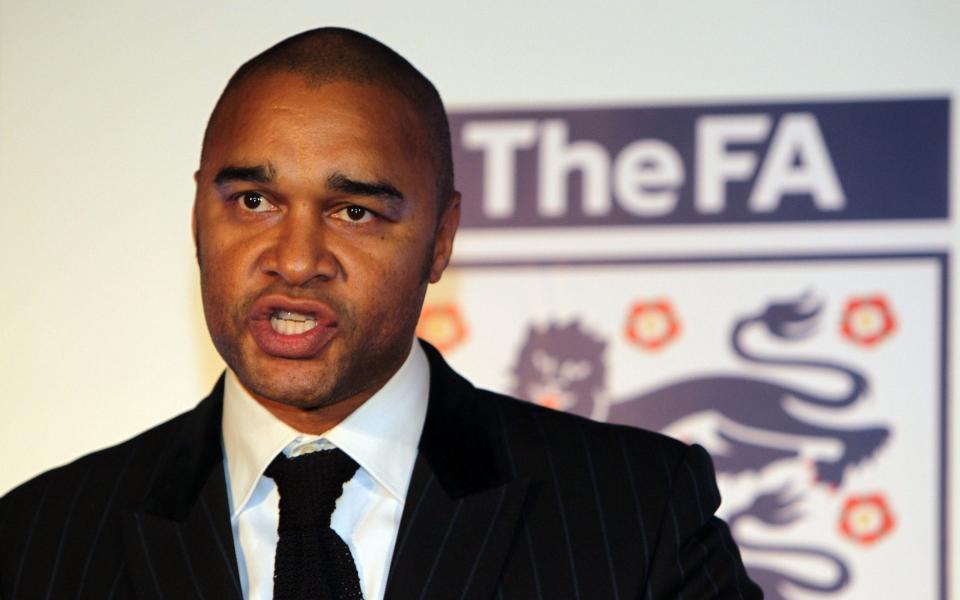FA planning to launch voluntary diversity code in October to coincide with Black History Month

The Football Association plan to launch their voluntary diversity code in October to coincide with Black History Month.
Clubs are being invited to sign up for Equality In Football Leadership, with the aim of increasing diversity in senior roles across the sport, with no black chairmen currently in the Premier League.
Preliminary talks have begun over the code, which will set targets for diversity rather than quotas. A number of club sources have indicated October as the launch date, which is seen as a fitting time of the year due to Black History Month.
Systemic racism in sport has been highlighted following the Black Lives Matter protests across the globe, which has seen players take the knee before games in support of the movement.
Investigations from The Daily Telegraph have revealed an alarming lack of black leaders across sport’s governing bodies.
The FA’s Equality In Football Leadership, set up last month, is aiming to address the problem from grassroots to elite level, with hope of other sport’s taking their example.
Paul Elliott, the chair of the FA’s Inclusion Advisory Board, set up the code and will talk to clubs about signing up. Bruce Buck, the Chelsea chairman, has pledged his support, as has Crystal Palace chairman Steve Parish.
Gary Lineker is among the ex-players who have committed their support, while Tyrone Mings is among the current England internationals.
The code was launched with an open letter from Elliott, the former Chelsea centre-back, where he outlined aims which will be discussed during consultation.
“We must ensure that our boardrooms and leadership positions reflect the society that we live in and the people who play the game,” read part of Elliott’s letter.
“Football, like in nearly every area of society, has Black and minority ethnic people underrepresented at all senior levels. Nearly 30 per cent of professional footballers are Black but Black people are still a rarity in the boardroom, executive offices and dugouts. This must change.”
Elliott’s code is one of the significant attempts at change after the BLM protests highlighted the fight for equality. As he wrote in his letter, the campaign is a start but it will become an “empty gesture” without action.
The FA have also carried out a programme where a BAME (black, asian, minority ethnic) coach works with each England age group squad. The lack of representation in coaching has also been addressed by the League Managers’ Association, who want black coaches fast-tracked to get study for their UEFA Pro Licence, increasing the pooled of qualified candidates for jobs.
The Equality In Football Leadership will look at getting representation in positions of power through the sport.

 Yahoo Sport
Yahoo Sport 





































